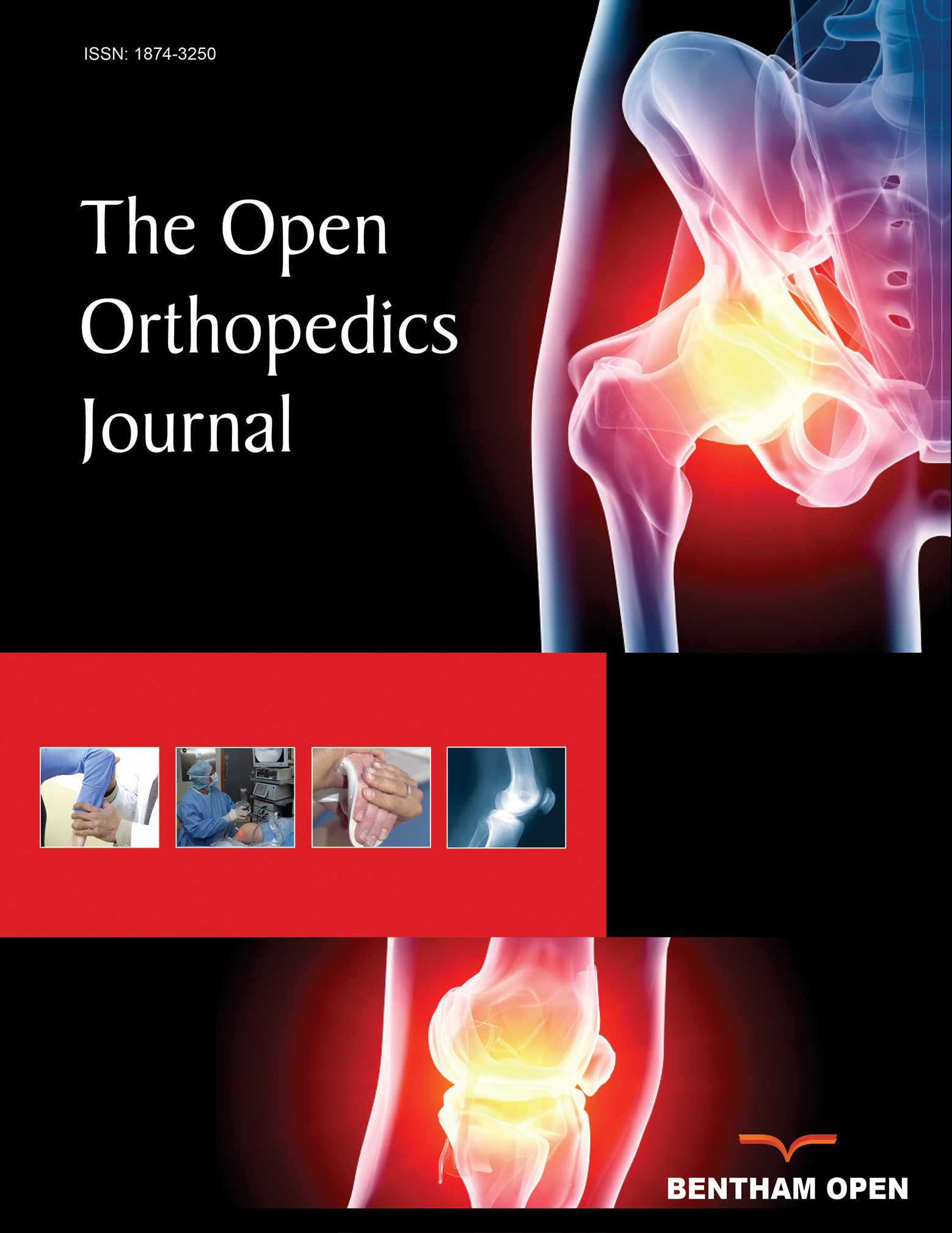All published articles of this journal are available on ScienceDirect.
Total Knee Arthroplasty for Post-Traumatic Proximal Tibial Bone Defect: Three Cases Report
Abstract
Bone stock deficiency in primary as well as in revision total knee arthroplasty (TKA) represents a difficult problem to surgeon with regard to maintaining proper alignment of the implant components and in establishing a stable bone-implant interface. Different surgical procedures are available in these situations, for instances the use of bone cement, prosthetic augments, custom implant, and wire mesh with morsellized bone grafting and structural bone allograft. Structural allograft offers a numerous advantages as easy remodeling and felling cavitary or segmental defects, excellent biocompatibility, bone stock restoration and potential for ligamentous reattachment. In this article we report a short term result of three cases affected by severe segmental medial post/traumatic tibial plateau defect in arthritic knee, for which massive structural allograft reconstruction and primary total knee replacement were carried. The heights of the bone defect were between 27-33 mm and with moderate medio-lateral knee instability. Pre-operative AKS score in three cases was 30, 34 and 51 points consecutively and improved at the last follow-up to 83, 78 and 85 consecutively. No acute or chronic complication was observed. Last radiological exam referred no signs of prosthetic loosening, no secondary resorption of bone graft and well integrated graft to host bone. These results achieved in our similar three cases have confirmed that the structural bone allograft is a successful biological material to restore hemi-condylar segmental tibial bone defect when total knee replacement is indicated.


